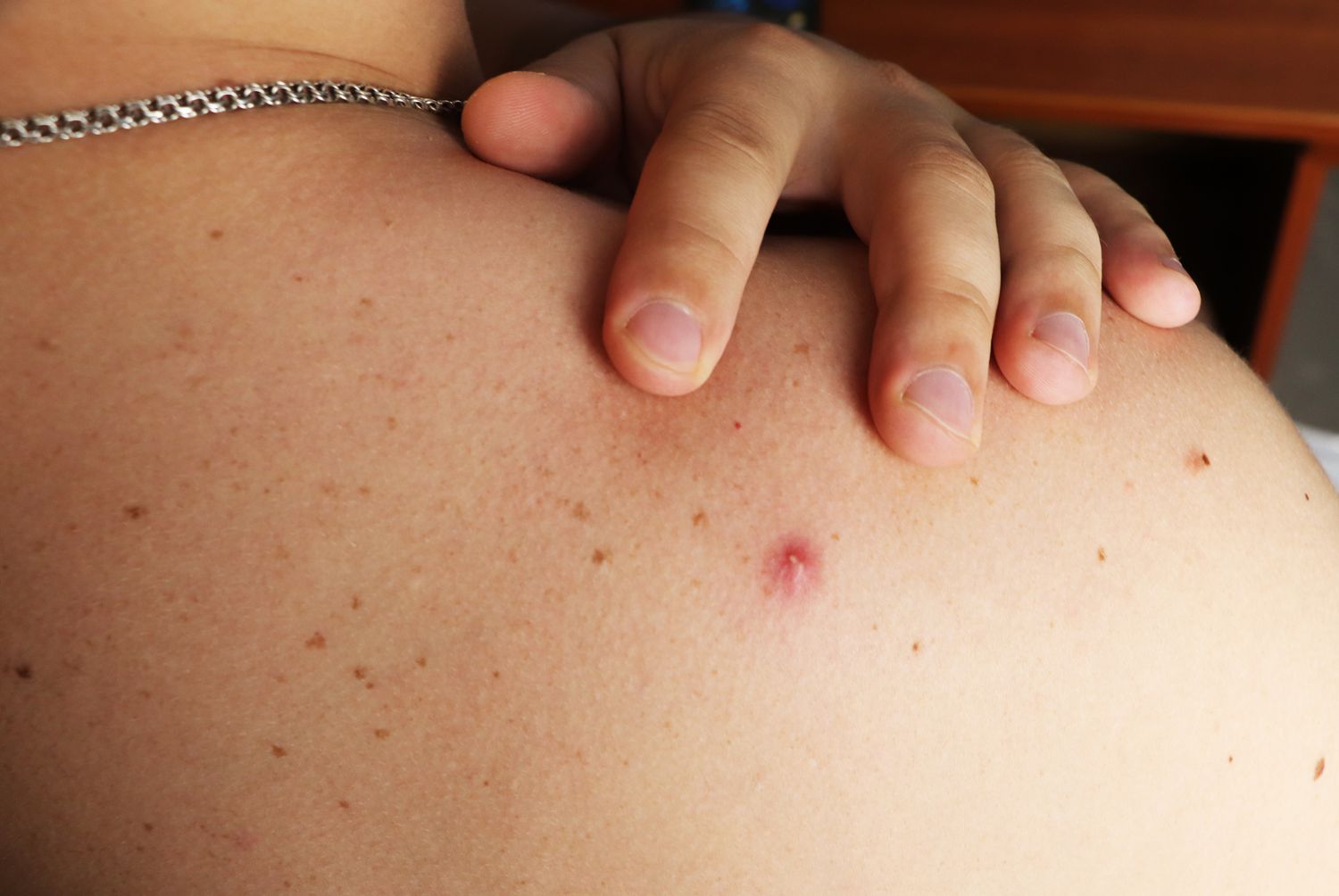Acne on Lower Back and Butt: Causes and Solutions
For many beauticians, addressing the concerns of clients who experience acne on the lower back and butt is a common challenge. While acne is often associated with facial breakouts, body acne can be equally distressing, impacting confidence and comfort levels in various clients. Understanding the underlying causes and effective treatments can help beauticians provide their clients with tailored advice and solutions.
Acne on the lower back and butt can be triggered by various factors, ranging from clothing choices to lifestyle habits. Tight clothing and fabric that don't allow the skin to breathe can trap sweat and bacteria against the skin, leading to breakouts. Moreover, poor hygiene, diet, hormonal changes, and even stress can exacerbate this condition. Addressing these factors can help in managing and preventing symptoms.

What Causes Acne on Lower Back and Butt?
Acne is typically caused by excess oil production, clogged hair follicles, bacteria, and inflammation. When it comes to the lower back and butt, these issues can be compounded by additional factors:
- Friction: Wearing tight clothing or certain workout gear can cause irritation and create an ideal environment for acne development.
- Hygiene: Regularly using a hypoallergenic body wash can reduce the risk by eliminating bacteria and excess oils.
- Diet and Lifestyle: Certain foods and drinks might contribute to inflammation throughout the body, including the skin.
Identifying these causes can help in crafting personalized recommendations for clients seeking relief from this pimple-prone predicament.
Effective Skincare Routine to Tackle Body Acne
Beauticians can guide their clients to adopt routines specifically designed for body acne. These steps include:
- Gentle Exfoliation: Using body scrubs such as those detailed in body exfoliation techniques every few days can help slough off dead skin cells and unclog pores.
- Using Acne-Specific Products: Recommending clients to incorporate treatments that contain ingredients like salicylic acid or benzoyl peroxide can help manage acne.
- Hydration and Moisturization: Encouraging proper hydration and recommending lightweight, non-comedogenic moisturizers can balance skin oil levels.
When to Seek Professional Help?
For cases where acne doesn't respond to over-the-counter treatments or begins to affect the client's mental well-being, it's crucial to advise them on consulting a dermatologist. Professionals can evaluate the client needs and prescribe more potent medications or treatments such as laser therapy, which may not otherwise be accessible.
Fostering awareness about these solutions can make a significant difference in one's willingness to seek appropriate help and adhere to professional guidance.
Innovative Treatments and Recommendations
There are numerous cutting-edge products and strategies available to beauticians seeking to help clients handle lower back and butt acne effectively. Some of the successful interventions include:
- Blue Light Therapy: Considered effective in reducing inflammation and clearing up acne-causing bacteria.
- Body Peels: Utilizing powerful ingredients which can penetrate deeper layers of the skin can help decrease acne blemishes.
Clients can also explore information on preventing body acne with the guidance of specialized skincare brands.
Conclusion
As a beautician, providing informed advice on managing and treating acne on the lower back and butt can significantly enhance your client relationships and reputation. With the proper techniques and dedication to personalized skincare education, you can empower clients to tackle their body acne with confidence, ensuring they feel comfortable and self-assured in their skin. By integrating both professional insights and holistic methods, beauticians can make a substantial difference in mitigating this persistent issue.

Frequently Asked Questions
1. How can tight clothing cause acne?
Tight clothing can trap sweat and bacteria against the skin, creating friction that clogs pores and leads to the development of acne.
2. What foods should be avoided for body acne?
It's often recommended to avoid high-sugar and processed foods, as they can drive inflammation, which may worsen acne conditions.
3. Can lifestyle changes help combat body acne?
Yes, maintaining a balanced diet, proper hygiene, regular exercise, and stress management are key elements that can significantly reduce the risk of developing body acne.
This article contains affiliate links. We may earn a commission at no extra cost to you.

